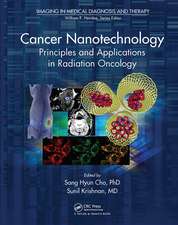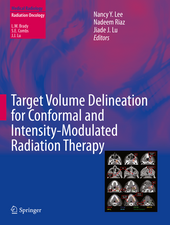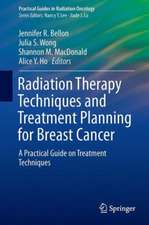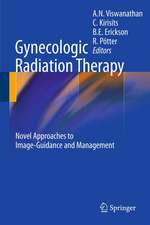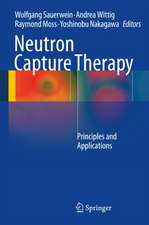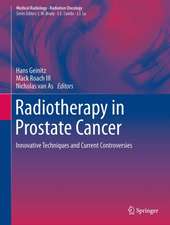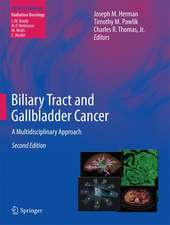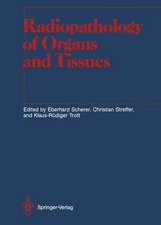Radiation Hormesis and the Linear-No-Threshold Assumption
Autor Charles L. Sandersen Limba Engleză Paperback – 26 noi 2014
| Toate formatele și edițiile | Preț | Express |
|---|---|---|
| Paperback (1) | 1027.69 lei 6-8 săpt. | |
| Springer Berlin, Heidelberg – 26 noi 2014 | 1027.69 lei 6-8 săpt. | |
| Hardback (1) | 717.20 lei 6-8 săpt. | |
| Springer Berlin, Heidelberg – 11 noi 2009 | 717.20 lei 6-8 săpt. |
Preț: 1027.69 lei
Preț vechi: 1081.77 lei
-5% Nou
Puncte Express: 1542
Preț estimativ în valută:
196.66€ • 210.29$ • 163.96£
196.66€ • 210.29$ • 163.96£
Carte tipărită la comandă
Livrare economică 17 aprilie-01 mai
Preluare comenzi: 021 569.72.76
Specificații
ISBN-13: 9783642425660
ISBN-10: 3642425666
Pagini: 232
Ilustrații: XI, 217 p.
Dimensiuni: 155 x 235 x 12 mm
Greutate: 0.33 kg
Ediția:2010
Editura: Springer Berlin, Heidelberg
Colecția Springer
Locul publicării:Berlin, Heidelberg, Germany
ISBN-10: 3642425666
Pagini: 232
Ilustrații: XI, 217 p.
Dimensiuni: 155 x 235 x 12 mm
Greutate: 0.33 kg
Ediția:2010
Editura: Springer Berlin, Heidelberg
Colecția Springer
Locul publicării:Berlin, Heidelberg, Germany
Public țintă
ResearchCuprins
Molecular and Cellular Mechanisms.- Natural Environmental Radiation.- Accidents, Tests, and Incidents.- Medical Exposures and Workers.- Nuclear Workers.- Biased Epidemiological Studies.- Evidence Negating the Healthy Worker Eff ect.- Lung Cancer.- Breast Cancer.- Leukemia.- Liver, CNS, and Thyroid Cancers.- Lifespan, Birth Defects, and Experimental Cancer.- Animal and Human Cancer Therapeutic Studies.- Conclusions, Summary, and Importance.
Textul de pe ultima copertă
Current radiation protection standards are based upon the application of the linear no-threshold (LNT) assumption, which considers that even very low doses of ionizing radiation can cause cancer. The radiation hormesis hypothesis, by contrast, proposes that low-dose ionizing radiation is not only safe but is healthy and beneficial.
In this book, the author examines all facets of radiation hormesis in detail, including the history of the concept and mechanisms, and presents comprehensive, up-to-date reviews for major cancer types. It is explained how low-dose radiation can in fact decrease all-cause and all-cancer mortality and help to control metastatic cancer. Attention is also drawn to biases in epidemiological research when using the LNT assumption. The author shows how proponents of the LNT assumption consistently reject, manipulate, and deliberately ignore an overwhelming abundance of published data and falsely claim that no reliable data are available at doses of less than 100 mSv. The consequence of the LNT assumption is a radiophobia that is very costly in terms of lives and money.
In this book, the author examines all facets of radiation hormesis in detail, including the history of the concept and mechanisms, and presents comprehensive, up-to-date reviews for major cancer types. It is explained how low-dose radiation can in fact decrease all-cause and all-cancer mortality and help to control metastatic cancer. Attention is also drawn to biases in epidemiological research when using the LNT assumption. The author shows how proponents of the LNT assumption consistently reject, manipulate, and deliberately ignore an overwhelming abundance of published data and falsely claim that no reliable data are available at doses of less than 100 mSv. The consequence of the LNT assumption is a radiophobia that is very costly in terms of lives and money.
Caracteristici
Examines all facets of radiation hormesis, including the history of the concept and mechanisms, and presents comprehensive, up-to-date reviews for major cancer types Explains how low-dose radiation can decrease all-cause and all-cancer mortality and help to control metastatic cancer Highlights how proponents of the LNT assumption manipulate and ignore an abundance of published data supporting radiation hormesis Includes supplementary material: sn.pub/extras



